#i do recognize that the way her character was treated is a product of That Time when it was cooler to hate girls 🥲
Text
u know i’m not sure if it’s because i read the series pretty young but i never got into percabeth even though i like their characters and enjoyed the narrative of them growing up and getting together !🫣 i think it works for the story but i don’t have any strong feelings abt it

#the shark is 2 soften the blow. in fact the shark is saying this not me he is speaking thru me. i am merely a vessel#i do not have a single pjo ship. the characters get together and i go ah. that makes sense <3#actually wait sometimes i say no <3 hashtag free leo from rr and hazel too#also. i will die on the hill that jason/leo works better than their canon ships#apparently i do have opinions 😳#i do think percabeth is super cute but i think reading it back when romance in books kind of annoyed me made me not get the hype#like if i had the patience to reread the first series now i would probably be a lot more into it#i think i was more invested in the trio than in their individual relationships with each other#grover percy and annabeth was soooo cuuuute i miss them#also seeing people hate rachel for being a girl with a crush made me super annoyed! she’s just existing omg 😭#i kinda made me :/ at the percabeth shippers for a bit#annabeth was so rude in that situation and she was supposed to be! she’s growing up and trying 2 be her best self but she has flaws too#she has a lot of flaws and that makes her interesting but not Correct#tbh percabeth was the only option story wise but i don’t think rachel/percy is an extremely offensive concept#i do recognize that the way her character was treated is a product of That Time when it was cooler to hate girls 🥲#i hope she’ll get a lot more love in the new show and people will acknowledge her as more than a home wrecker or whatever#🎵that one sabrina carpenter song i watched in target🎵#(all because i liked a boy or smth?)#yo that song looks so funny because her background dancers are almost all woc#which is good great excellent But idk it looks hilarious when these girls are kicking and bullying the cute white blonde girl 😭😭#obviously i feel for her but the visual of it is unintentionally hilarious#if you read my tags you may be entitled to financial compensation#i talked enough on tumblr for today byeee
11 notes
·
View notes
Text
How Goro Akechi effectively serves as a dark foil to the Phantom Thieves' brand of rehabilitative justice
So... I understand that Goro Akechi is a pretty divisive character within the Persona 5 fanbase (especially his pre-Royal incarnation), but I have to admit, I honestly found his backstory and role as a sinister foil to Joker and the Phantom Thieves to be legitimately intriguing.
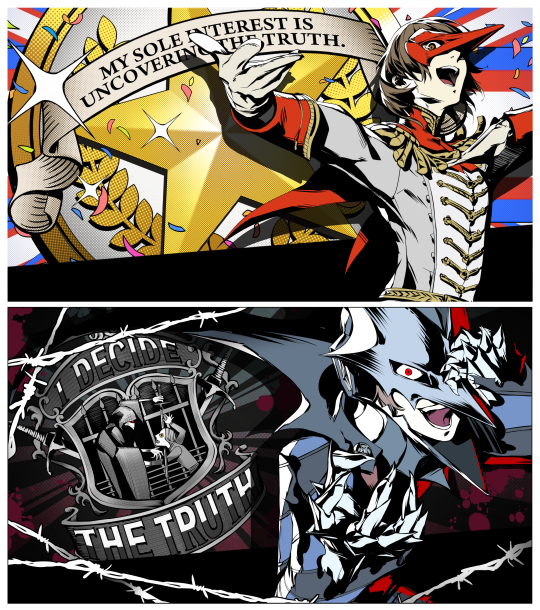
I loved how during the palace mission on the cognitive yacht of the corrupt ultra-nationalist politician, Masayoshi Shido, it is revealed that Akechi is not only the true culprit behind the mysterious wave of mental shutdowns & psychotic breakdowns that have occurred throughout the background of the entire game (including the deaths of both Futaba’s mother, Wakaba Isshiki, and Haru’s father, Kunikazu Okumura) but that he is actually Shido's illegitimate child!
Essentially, Akechi was the product of a dubious affair between Shido and a sex worker whom the former later discarded when he discovered that she was pregnant, driving her to depression and suicide shortly after Akechi's birth. Akechi spent his entire childhood being passed around as a “problem child” between various foster homes (highlighting Japan’s problems with how the country treats its orphaned children) before later being granted the power of the "wildcard" persona as well as knowledge of the Meta-Verse by the false god of control, Yaldabaoth.
While Akechi was a societal outcast similar to the members of the Phantom Thieves, he took the wrong message from his experiences. Akechi misguidedly believes that the only way to truly oppose the status quo that looked down upon him is to not only become a part of it (i.e. caring only about his good grades & celebrity status) but to destroy everything that he hates by reducing himself to Shido's right-hand assassin in the Meta-Verse, perpetuating mental shutdowns & psychotic breakdowns to Shido’s political enemies simply to get some semblance of recognition & validation from his abusive father before exacting revenge on him (whilst exploiting his "ace-detective" celebrity status to "solve" the crimes that he himself committed).

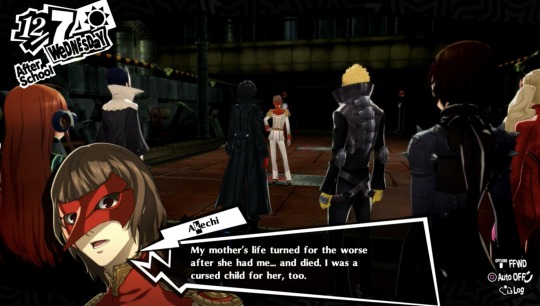
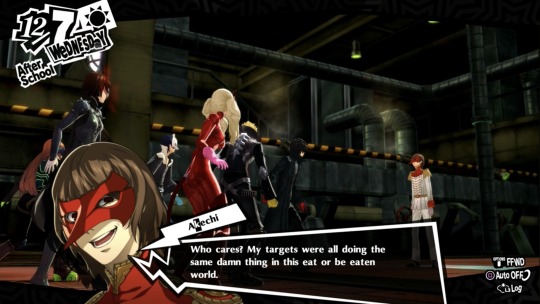


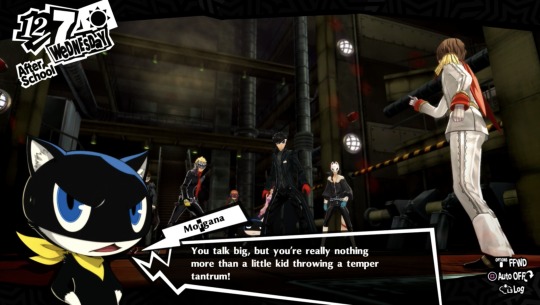
Essentially, once Shido finally became prime minister Akechi planned to whisper the truth about being the former’s illegitimate child, telling Shido that he was only able to get where he was due to the son he abandoned and labeled as a potential “political scandal” before murdering him.
Despite Akechi and the Phantom Thieves' mutual dislike of Shido however, Akechi is so fixated on vengeance that he does not care about the innocent lives he ruins and destroys in the crossfire to satisfy his own personal bloodlust. Instead of legitimately trying to reform society like the Phantom Thieves do, Akechi becomes a pawn of the very same systemic corruption that was responsible for his initial suffering. Akechi cares only about his own hatred & jealousy instead of empathizing with others who were also victimized by society’s ills. That is why when Joker has his rematch with Akechi on Shido's Yacht in the meta-verse, the two are visually juxtaposed between Joker standing strong alongside his teammates & friends, while Akechi remains alone, confused & angry. While there is a part of Akechi that regrets his horrible actions and even recognizes the potential for him & Joker to be friends due to their similar backgrounds, he's too far gone into his obsessive vendetta against Shido that he refuses to turn back and now desires to kill the Phantom Thieves in a misguided attempt to ease his internal conflict.





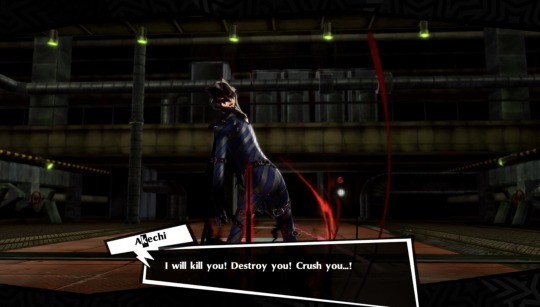
During the boss fight with Akechi in Shido's Palace, the detective prince repeatedly dismisses the Phantom Thieves' efforts to appeal to his common senses, believing that concepts like friendship and teamwork are foolish "cliched bullish*t... in this eat or be eaten world." While this attitude of Akechi's might seem unrealistically cartoonish on the surface, it actually makes sense when considering his background of being unfairly labeled as a "throw-away child" by Japan's foster care institutions. YouTuber LadyVirgilia goes into far greater detail about this in her excellent The Truth About Goro Akechi analysis video. There, she states that an overwhelming number of Japanese orphans are incapable of being legally adopted due to impoverished parents voluntarily relinquishing them from their care while still maintaining legal guardianship over them. Additionally, LadyVirgilia discusses how violent hierarchical power structures often form among the children within these foster homes, with younger orphans sadly being subject to bullying & abuse by their older peers.
While these facts are not explicitly stated about Akechi's backstory within P5 Royal itself, they can easily be heavily inferred due to the game's heavy emphasis on exploring themes related to Japanese sociocultural issues. The institutional failings of Japan's foster care system (combined with Shido's abandonment of his son while he was still in the womb), ultimately contributed to the development of Akechi's warped perception of the rest of the world. Due to being dismissed as a "throw-away child" and being forced to grow up in an institution that is unfortunately subject to high rates of systemic abuse & neglect, Akechi spent his entire life feeling unwanted & loved. Ideals such as friendship & companionship became foreign and unrealistic concepts to him due to having experienced nothing but society's cold & uncaring apathy. Consequently, Akechi became deeply jealous & hateful toward the rest of the world, misguidedly compelling him to want to prove his superiority over the rest of society by manufacturing his status as "the celebrity ace-detective and honors student who ultimately brought down Shido." But when Akechi encounters the Phantom Thieves and befriends their leader Joker, he begins to experience his first genuine bond of companionship. While Akechi maintains a legitimate appreciation toward Joker, he is simultaneously confused & unable to fully process these newfound feelings, becoming envious of Joker's ability to rise above his similar status as a societal outcast to befriend & protect others like himself. Consequently, Akechi projects his own failings & inability to legitimately rise above his tragic upbringing beyond his false celebrity status onto Joker & the Phantom Thieves, cruely dismissing them as "the trash of society" and blaming them for interfering with his revenge plot against Shido.
This empty & hollow existence that Akechi chooses to live is further reflected by the sole two personas that he utilizes during his boss fight: Robin Hood, who represents Akechi's false celebrity & law-abiding gentleman facade, and Loki, who embodies Akechi’s true personality as a deceitful trickster & psychotic murderer.
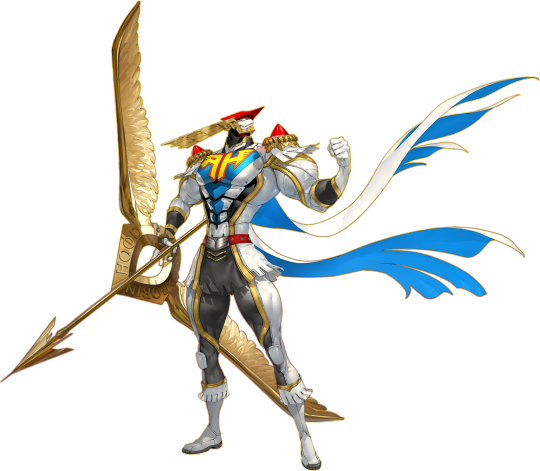
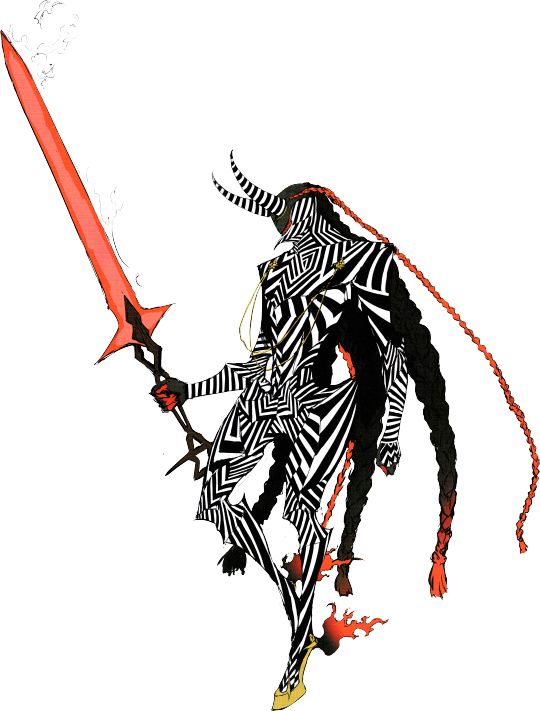
I personally couldn’t help but find all of these elements to be rather interesting & insightful about Akechi’s role as an antagonist/rival to the Phantom Thieves. It honestly highlights the tragic nature of Akechi's situation, since while he had the potential to utilize his deductive knowledge & skills as a "wildcard" Persona-user similar to Joker, he instead allowed himself to be consumed by his own hatred & madness. In contrast, while Joker was also abused by Shido by being wrongfully sued for “assault” when he tried to stop Shido from sexually harassing a random woman, Joker now fights against the systems of authority that criminals like Shido represent to prevent similar abuses of power from ever occurring again to others. Additionally, we also see dualistic parallels between Akechi and Joker's fellow Phantom Thief/potential-romantic partner, Makoto Nijima, since she too similarly previously fell prey to the misconception that “good grades and following orders are all that truly matters to be a worthwhile member of society.” However, Makoto, now utilizes her study skills to help the downtrodden & oppressed instead of for either her own benefit or because it’s what society expects from her, whereas Akechi exploits his false celebrity detective status to further his self-centered vendetta, innocent lives be damned.
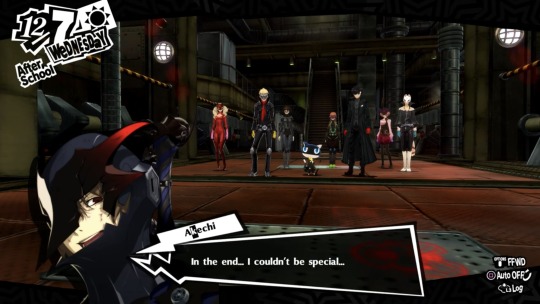
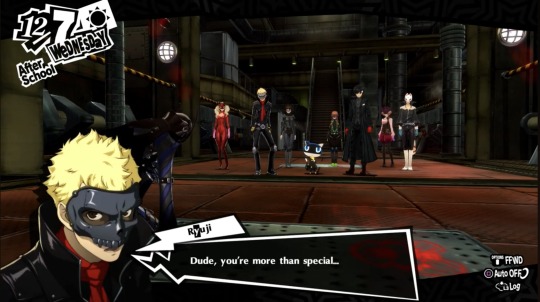
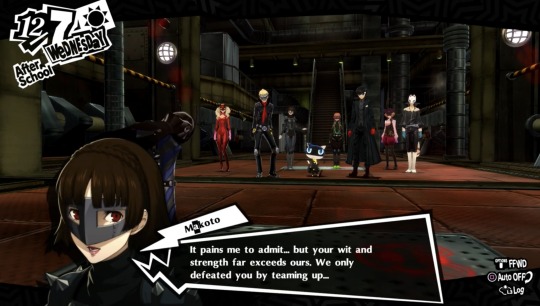
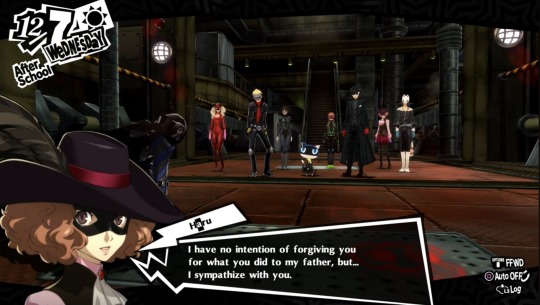
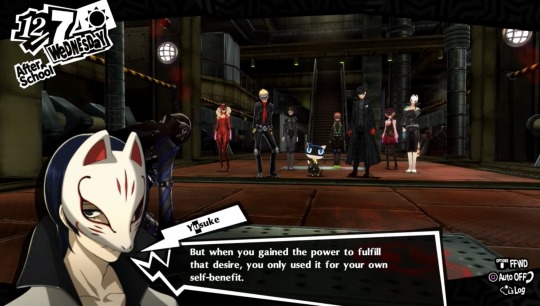
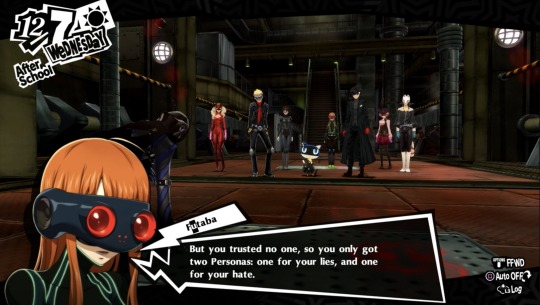
In essence, if the Phantom Thieves embody the potential benefits of rehabilitative justice then Goro Akechi embodies the dangers of retributive justice (aka, revenge). To reference two of my favorite movies, Batman Begins and Star Wars Episode VIII: The Last Jedi, not only is there a strong difference between justice and revenge (one is about altruistic harmony whereas the other is about personal satisfaction), but the most surefire way to victory is by fighting to protect what you love rather than fighting to destroy what you hate...

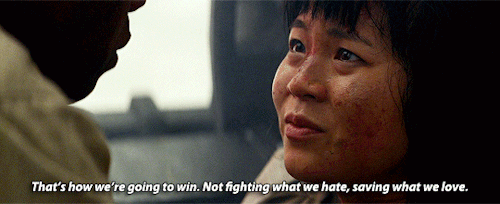
The distinction between justice & revenge is made abundantly clear at the end of Akechi's storyline in the baseline game (i.e. before the Royal exclusive Third Semester new content), where following his defeat at the hands of the Phantom Thieves Akechi is suddenly approached by a cognitive duplicate of himself that dwells within Shido's palace. In addition to the Cognitive Akechi emphasizing the futility of Akechi's quest for acknowledgment & vengeance against Shido by revealing that the latter always intended to dispose of his right-hand assassin once he was elected prime minister, the cognitive duplicate also reveals the true depths of Shido's depravity when he states that he only ever viewed Akechi as a puppet to fulfill his own ambitions. While it is true that Akechi was so obsessed with revenge that he allowed himself to become a pawn of the corrupt status quo, it is exceptionally cruel to learn that this is how Shido has always viewed his own son (which is further punctuated by Shido later revealing to the Phantom Thieves that he secretly always suspected that Akechi was his illegitimate child due to how much he reminded him of his mother). It is this revelation in particular that allows the Phantom Thieves to better empathize with Akechi's tragic upbringing & circumstances. Even though they still seek to hold Akechi accountable for the murders that he committed at Shido's behest, the Phantom Thieves simultaneously recognize that in a sense, Akechi was also a victim of both Shido's cruelty and the systemic injustices of larger Japanese society.
This effectively culminates in the bittersweet resolution to Akechi's storyline in the base Persona 5 game. When the Cognitive Akechi duplicate offers his real-world counterpart one last chance to "redeem" himself in Shido's eyes by killing the Phantom Thieves in his stead, Akechi for the first time in his life decides to be his own person instead of being defined by the labels Shido and society had imposed upon him since birth. Choosing to no longer be a puppet of Shido's corrupt machinations, Akechi rejects his cognitive duplicate's hollow offer by instead turning his gun on the duplicate and his Shadow minions before sealing the engine room's watertight doors between himself and the Phantom Thieves. At the very end, Akechi was finally able to acknowledge that his desire for false appreciation from both his abusive father and larger society was ultimately worthless. Akechi ultimately sacrifices himself to allow the Phantom Thieves to escape, recognizing their true justice while entrusting them to do what he was incapable of by holding Shido accountable for his crimes & reforming society.
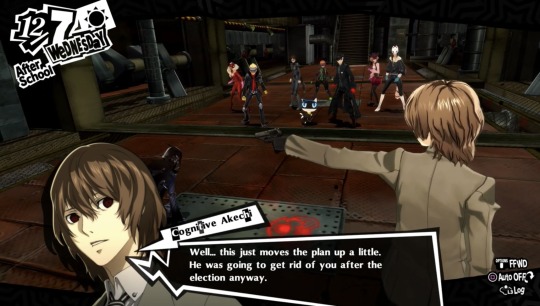

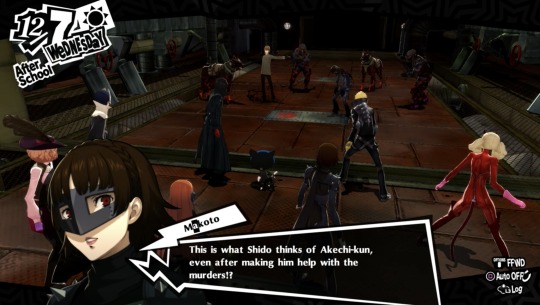

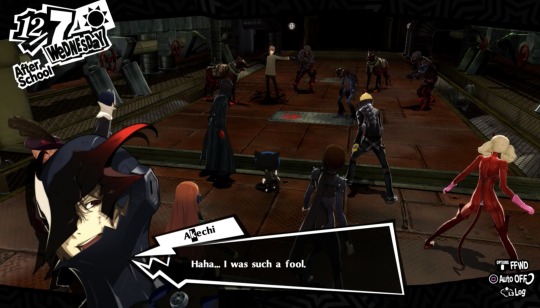
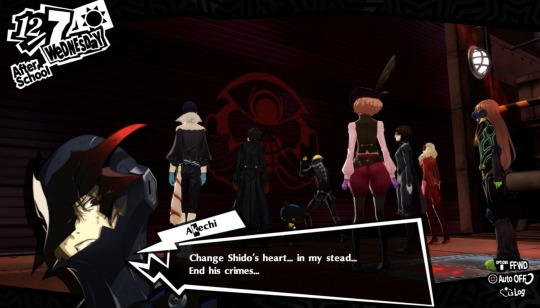
From a certain point of view, one could argue that the Phantom Thieves indirectly inspired a change of heart in Akechi by proving to him the validity of their sense of justice.
Overall, while I was initially indifferent towards Goro Akechi at the start of my playthrough of Persona 5 (and even outright skeptical & suspicious of his motives given his vocal opposition to the Phantom Thieves), by the time I got to his boss battle in Shido's palace I ended gained a deeper understanding and appreciation for what the developers at Atlus were attempting to convey with his character. Akechi effectively functions as both a cautionary tale about the dangers of allowing oneself to be consumed with thoughts of revenge, as well as a dark parallel to the Phantom Thieves who seek to legitimately reform society for altruistic rather than self-centered reasons. It was these elements that ultimately elevated Akechi into becoming one of my personal favorite members of P5's cast (right behind Makoto, Futaba & Ann...) from both a narrative and character writing perspective (especially with the Royal edition's overhauled confidant line for Akechi, which better fleshes out the latter's rivalry with Joker, and the player now has to progress manually instead of it being automatic)! And I am definitely curious to see how Royal's exclusive "Third Semester" content further fleshes out Akechi's character since I'm aware that he plays a major role in the new story content.
#persona 5 royal#p5 royal#persona 5#goro akechi#crow#black mask#robin hood#loki#masayoshi shido#phantom thieves#p5 joker#p5 protagonist#ren amamiya#makoto niijima#ann takamaki#ryuji sakamoto#morgana#yusuke kitagawa#futaba sakura#haru okumura#batman begins#the last jedi#justice vs revenge#rehabilitative justice#atlus games#video games#mini essay#Youtube
114 notes
·
View notes
Text
I just had an encounter on Twitter surrounding racism towards Guinevere in the Merlin fandom. A fan made a comment about fans ignoring the black girl in favor of the non-canon ship. I reacted too quickly to disagree with them and we exchanged replies back and forth until I realized what my issue was.
I had claimed that only a tiny part of the fandom is actively racist and hateful towards Gwen, because in my experience, that’s what I’ve seen. I’ve only ever seen love for Guinevere, and the selective moments where someone was being hateful, the fandom shut them down.
This fan informed me that they encounter it everywhere, and that it has been a prominent, majority of the fandom since the show aired.
I tried to argue with them until I realized how counter-productive and hypocritical it was of me to argue with a fan of color over whether or not there’s significant racism in the fandom.
I spoke reactively instead of thoughtfully. My gut instinct felt like they were attacking Merthur fans for shipping them, and implying that it was done out of racism toward Guinevere. I got defensive, since I myself am a Merthur shipper who has and will actively fight racist pieces of shit I encounter. But that’s just the problem, I haven’t encountered anything, so my instinct was to defend Merthur shippers under the impression that it wasn’t as big of an issue as they were making it out to be.
When I realized that’s where my reaction came from, I recognized the flaws in my behavior. I sincerely apologized and explained that I actively fight racism in the fandom, but that my behavior was counter-productive to that goal. I hope they do believe me, because it is absolutely true that I know better, and I’m angry with myself for even doing it in the first place.
But I also hope that they understand that it came from a place of wanting to believe that this fandom was better than this.
I wanted to defend the fandom and correct them about their comment, thinking that I was right just because I’ve never seen what they’re referring to. Over the last year, I was writing massive essays and other Merlin posts that gained a lot of attention. I was super active on here, and thought that that meant I would’ve seen it if it was a significant issue.
That’s obviously stupid of me, and I apologized to them for my behavior, because I know better.
This leads me to writing this post. I don’t care if no one sees this, but I need to voice this, because it’s true, and for my own sanity.
We need to be better.
I realize that just because I haven’t seen it doesn’t mean it’s not there, and it’s not my place to make that call. If they are a fan of color and telling me that it is a prominent issue, I should’ve immediately listened.
So this is directed at those racist people: get the fuck out of this fandom.
You don’t belong here, and clearly missed the fucking point of the show if you think that discriminating against Guinevere for being born a certain way is in any way okay. The entire message of the show is that no one should be treated differently because of something they cannot control, something naturally part of them.
We often use the analogy for hiding who we are for being part of the community, but you need to recognize that being shamed for being a certain way and feeling like an outsider applies to all minorities.
So I say again, if you are a racist fuck who hates Guinevere because of her race or purely because you prefer Merthur, get the fuck out.
There are valid reasons to dislike her CHARACTER, but being a black woman, and being in a relationship with Arthur, are not among them.
Thank you for reading.
#merlin#merlin bbc#bbc merlin#merlin thoughts#merlin emrys#arthur pendragon#guinevere pendragon#merthur#the once and future fandom
66 notes
·
View notes
Text
On Dragon Age II's Ending
The ending of Dragon Age 2 has always felt to me like the least morally ambiguous of any of the games' mage-templar decisions and frankly one of the least ambiguous "big" decisions in the series.
DA2 makes it extremely obvious that the Circle mages are about to be executed for something that absolutely none of them had any part in and no one, not even the Knight-Commander, is arguing that that isn't the case. You can feel whatever kind of way about what Anders did, and still recognize the staggering injustice of killing all the Circle mages for something that everyone, including the Knight-Commander calling for their deaths, is fully aware they did not do.
And just in case that wasn't clear, someone made a point of dropping in that bit of ambient dialogue telling us that Meredith is already trying to get clearance for the Right of Annulment before the explosion; she's just looking for an excuse. The game is pretty clear about the injustice of this situation, regardless of how many demons and blood mages there may or may not be in Kirkwall.
I'm a chronic replayer who enjoys making up new characters every time to see things I haven't seen before and I didn't have a particularly difficult time coming up with in-character, circumstantial reasons why a character might annul the Circle in DAO or recruit the templars in DAI and believe they're doing the right thing. For the former: dwarven noble who knows little about magic and believes what the Knight-Commander tells her, and chooses the wrong dialogue option with Morrigan in the party so Wynne attacks and therefore is not present in the party as an emotional anchor and a voice for the mages, and listens to Cullen when he says it's too dangerous to let any of the mages live. For the latter: non-mage human noble from a Chantry-connected family who just implicitly trusts templars, as he was raised to. Or Dalish elf who walks into Redcliffe, sees a magister stinking up the place and says "Well, the Dread Wolf take the lot of you then" and turns around and marches straight to Therinfal, conscripts the templars, disbanding the Order in the process. Just a couple of easy examples I've actually played.
But the ending of DA2 is a choice between "Yes, I will help to execute these people for something everyone knows they didn't do" or "No, I will not do that and I will help them defend themselves and escape." Of course it's possible to come up with in-character reasons to make the former choice, and I have! But it's much less of a choice a character could just stumble into, and you have to do a lot more ideological contortions for a character to do that and believe they're doing the right thing.
Yes, there are a lot of blood mages and demons in Kirkwall. While we don't get a lot of opportunities to treat blood mage NPCs with much nuance apart from Merrill as most blood mages are programmed to attack on sight (and this is likely a product of the game's tight development deadline), the game itself offers an explanation for this in the writings of the Band of Three, the Enigma of Kirkwall codex entry that you can collect throughout the story. While you have to look to find it, this history does make it clear that Kirkwall is meant to be an outlier, for reasons both political and historical (which is another post for another day). And Merrill herself, whether you agree with her viewpoints or not, does offer an important counterpoint: a character designed to be sympathetic while giving a more nuanced perspective to the player on why a mage might choose to use blood magic.
And yeah, even with the fact that the game makes you fight Orsino in the mage ending, I still think this. It's clumsily executed, yes, but Orsino going all blood magic harvester abomination is just one more example of what the game has been showing us all along: that mages (like most people) turn to extreme measures when they're backed into corners with no sense of hope, and the templars then use those extreme actions to justify further abuses of mages. I don't think it was strictly necessary (and for what it's worth, Mark Darrah agrees with that; it's a decision that was made out of concern for gameplay balance more than narrative and in hindsight he's said that he thinks it was a mistake), and I definitely think it could have been executed better, but as it stands it does fit an ongoing theme, and Orsino's actions still do not justify the murder of every other mage in the Circle.
And then there's that thing where Hawke can only receive the support of the nobility and become Viscount if they side with the templars, thereby agreeing to uphold the existing power structures in Kirkwall. It's easy to miss if you've never played through the templar ending (and also because Hawke doesn't hold the position for long and Inquisition doesn't really acknowledge that they ever did Correction: It is actually mentioned in the Champion of Kirkwall codex entry, and possibly other places as well, my memory just failed me), but to me that outcomes is absolutely inspired. It serves to highlight how deeply intertwined the nobility are with the Chantry. The nobles of Kirkwall want Meredith deposed because they feel she's overstepped her bounds by denying them a proper viscount, but they are not anti-Chantry or anti-Circle; they still want mages locked up, and they probably also remember what happened the last time Kirkwall's nobility decided to try and contest the Chantry's power in their city (see: Perrin Threnhold).
I find the templar ending genuinely interesting to play through in terms of seeing the story from that angle, and in terms of what it has to say about power structures and politics in Thedas generally and in Kirkwall in specific, which I also wrote about recently. (To say nothing of how differently it frames Varric in Inquisition when the Hawke he idolizes is the Hawke who slaughtered Kirkwall's mages to a one.) I would honestly recommend playing it at least once for lore reasons if you're into that sort of thing. But I would hardly say that you as a player come out of that ending feeling like you're playing the good guy.
And I'm not even arguing that all choices in the games should be this in-your-face. On the contrary, I don't think they all should. I like it when it's possible for a character to make a choice with unintended outcomes, or get accidentally locked into a worse choice because of previous decisions (like annulling the Circle and then being forced to kill Connor or Isolde). Those are some of my favorite kind of choices in these games. In this particular case, I do think the extreme nature of the choice is important to the story, both as the catalyst for the mage rebellion and to underscore why Anders did what he did.
So when people tell me that DA2 "both sideses" the mage-templar conflict... I respect that it's possible to feel that way about it, but I just don't see it. The game allows the player to role-play a character who might make various choices within its narrative; that is not the same thing as presenting all choices as morally equivalent in-universe, and it has never been the same thing, in any of these games.
If you're looking for one mage-templar choice that puts the injustice squarely in your face, I think the ending of DA2 is very much that.
#dragon age 2#dragon age#blunders of thedas#dragon age meta#chantry explosion#i've had this unfinished in my drafts for a while but today's the day i guess!#lmk if there's anything else i should tag this#i realize this is stuff we all have very strong feelings about#if you disagree with me that's fine#i just ask that you be civil please#there's some very gentle criticism of the game in here but mostly re: the rushed development
371 notes
·
View notes
Note
I like Stiles as a character, but I often get frustrated by fanon diverging from canon, and the worst of it to me is the ways that Lydia treated by Stiles - as something he deserves, most notably when she kisses Scott and he's angry, which the fandom holds against Scott because apparently Lydia making choices means Scott is a bad friend - or in the scene when Lydia is high after the werewolf attack at the movie rental place, and the only thing that keeps Stiles from doing [something] is that Lydia calls out for Jackson rather than him.
I think Stiles is kind of a jerk, and I like him because of it, but the fanon Stiles used as a weapon to bludgeon canon Scott is... the dumbest thing in the fandom

Have you ever seen the frequent criticism on this site that certain people should have paid more attention in English class? This criticism arises from posts like the one I saw today, where a person was confessing that "people think Stiles is evil because he almost made out with Lydia while she was drugged up." I don't think Stiles is evil for doing that; it sounds like you don't think Stiles is evil. I've never actually heard anyone call him evil for almost giving into temptation. (The closest I've ever come to calling Stiles's evil is his behavior in Lies of Omission (5x09) and Status Asthmaticus (5x10) and I don't even go that far). What we do recognize that what he did in Lydia's bedroom in The Tell (1x05) wasn't the right way to behave.
Stiles's desire for Lydia is real and natural; it was his inability to recognize and respect proper boundaries that almost created a very bad situation. He did pull away when Lydia said Jackson's name; the realization that she was confused about who he was and not secretly attracted to him reminded him that his behavior wouldn't be the fulfillment of his desire but him taking advantage of her. It's a good scene that tells us about Stiles's weaknesses but also about his strengths: beyond the insecurity that leads him to fixate on the most unattainable girl in school and his constant disregard for proper boundaries, Stiles is a fundamentally decent human being.
So why do I, personally, bring up this scene when talking about Teen Wolf a lot? Stiles-stans (who are not really fans of Stiles but fans of Fanon Stiles or, more accurately, Self-Insert with a Stiles Name Tag) like to go on and on about how deficient a person Scott McCall, the lead protagonist, is because he was "obsessed" with Allison and lacrosse. They argue this to say why they 'dislike' him, but what they actually mean is that he shouldn't be the lead protagonist. But they never seem to remember Stiles's behavior when it comes to Lydia (or Derek's behavior when it comes to Paige or Liam's behavior when it comes to Hayden for that matter).
My position -- and I think the production shared this position -- is that Scott's desire to have a girlfriend and make first line on the lacrosse team is real and natural. However, his attempts to avoid recognizing and coping with the consequences of Peter's vicious assault could lead to very bad situations unless he took responsibility. Scott had to learn how to anchor himself -- which he did! He had to make sure he put what was truly important ahead of his relationship with Allison -- which he did!
I have always maintained that Teen Wolf is a bildungsroman, which is a story about children becoming adults. Throughout the series, Scott's growth is primary; he evolves from an asthmatic loser who feels like he sits on the sidelines of life into a True Alpha werewolf leading a war against those who would murder supernatural creatures out of self-interest. But he's not the only one to grow. Allison had her own story; Lydia had her own story; Derek had his own story (one of the best redemption arcs ever); and Stiles had his version of that story!
The problem is that there are a lot of people who didn't watch Teen Wolf as a story, but rather as raw material. They swooped in and picked up the parts that they wanted, like vultures devouring a carcass. They wanted Stiles and <insert white male love interest here> to be the focus of the show, as they were the focus of their interests, but they could do without the part where Stiles struggles to grow up. In response, they selected only the parts that fit their agenda. Thus, Scott becomes dull, obsessive, stupid, with a foolish no-kill rule, and an unearned hostility toward the Hale Family whom he shamelessly usurps, even though none of that description is remotely true. On the other hand, Stiles becomes the should-be valedictorian of his class, a master archmage, and a ruthless anti-hero ready to kill anyone to protect which ever white male character he loves this week, even though none of that description is remotely true.
Fandom, in the name of their own enjoyment, has boiled their understanding of the story down to "I don't like Scott" and "Stiles is not evil!" Nuanced takes like "Stiles had the courage to cross boundaries to protect others but that tendency also led him into some problematic actions" and "Scott didn't start out a heroic protagonist; he only embraced the mantle when he realized that the threats he had to face didn't care that he and his friends were teenagers." become difficult for them to understand and unpleasant for them to process, because they only really want Power Fantasy Stiles and Bad Friend Scott. Those bits and pieces fit into the pre-existing tropes that bring them pleasure. It's the limitations that frustrate them, not Teen Wolf's.
19 notes
·
View notes
Note
So I'm *still* thinking about the most recent FnF chapter, specifically that line Silco gives Jinx about making a kill and doing it right - because it almost reads as...merciful? coming from him, in that moment? Or like a deeper glimpse into how violence plays a part in his own actions and identity, and the standards he weighs that violence against. Idk it just gave me lots of food for thought, and I'm curious how you see the relationship between his rage/violence and himself, and what all's feeding into the reaction that scene got out of him?
Heeee I'm so glad you liked that part, and that it gave food for thought. It's absolutely something I'll be exploring in future chapters, and throughout the fic<333
"It's a little crude, I'll admit - the base violence necessary for change."
I go back to this line whenever addressing Silco's relationship with violence in FnF. Fundamentally, I write his character as - at least on the surface - an ideologue wrapped in the ruthlessly pragmatic skin of a hatchet man.
He wasn't born the strongest, or fastest, or smartest. But he's lasted as long as he has because he does what needs to be done, no matter how high the moral cost or how messy the consequences.
That doesn't mean he revels in the violence itself. If anything, by describing it as 'base', he acknowledges that he's corrupting the purity of his vision. But as he also states, "Topside won't listen to anything else."
His ends (Zaun) justify his means (drugs, gang violence, manipulation, murder). And yet the irony is that in his struggle to achieve freedom for the Undercity, he proves Marx and Du Bois' theory of how man is the product of his social conditions, and therefore cannot be the maker of his own freedom, much less his own happiness.
Silco is an extremely intuitive and self-aware character. I have little doubt he's cognizant of his own hypocrisy - or the limitations of his gamble. But he forges ahead anyway, because he's utterly possessed by his ideals even as he is the very antithesis of the idealism itself.
The man truly is a walking paradox - on the one hand willing to minimize mess by staging a coup against Topside through scare tactics, but on the other hand ready to kill his rival's children just to make a point; to give his underlings second chances to prove themselves, but ready to kick a man to death just to regain control over himself; to let his chem-barons, like Renni, live despite them conspiring against him, but to make plain that he'd kept her son as a hostage in his factory just in case she overstepped.
In FnF, his ethos is repeatedly described as "Cost and reward." I wanted to focus on that facet because he's undergone extreme violence himself at other's hands (psychologically, emotionally, institutionally). Yet each setback, despite scarring him, has also pared down his softer sensibilities, and made him sharper, colder, crueler.
He's a survivor, who has clawed his way to power from nothing. But he also understands that power comes with a price, and that its processes must be respected. There are aspects of it he enjoys, but also aspects that he recognizes as possessing both gravity and consequence - and which must be treated accordingly.
In FnF, we see that in his approach with the chem-barons: they speak violence as a crass language, and make a show of the power they've attained, because it's a means in itself rather than a tool employed for a greater end. His riposte each time is to drag them down to earth, humble them, humiliate them.
In making a spectacle, he imparts the message, "You have no real power and disrespect the cost of achieving it. Therefore you don't deserve it."
I also have an upcoming flashback scene of Jinx's initiation into his gang - her first kill. She is thirteen, and Silco quite literally looks her in the eye and orders her to put a bullet in a traitor's skull.
Do it, Silco thought.
It was but one of the hundred steps to forging her into polished perfection. To peeling away the moony-eyed child to expose that tungsten chilliness that Silco knew was at her center. Power was a commodity in their world. By dint of its nature, supply was limited. All scarcity came with cost—be it a rival chem-boss painting a bullseye between your eyes, or an ally sticking a knife in your back, or an underling seeking to steal your throne from under your feet.
They all wanted to own what you possessed.
They all took without paying the price.
Silco had taught Jinx the language of knives. He'd showed her the intimacy of violence, not just as a display of force but a measure of skill. Now she needed to master the final lesson. Anyone in the Undercity could wield a weapon. Anything in the Undercity could become a weapon. But at its core, a weapon was neither a toy for showy enjoyment nor a tool for sanctified self-defense. It was the purest and most absolute means of death.
He wasn't making Jinx a killer. He was teaching her the cost of survival.
About its winners—and losers.
This is also why I write his network as vaguely militaristic in its jargon, hierarchy and general efficiency. The men and women serving his cause are professionals: they execute a strategy, minimize waste and don't cause more damage than is necessary. Combat isn't a game to them; it's all in a day's work because in the end, violence isn't a glorified game, or a gory hobby.
It's a tool like anything else.
It's also why Sevika and the crew dislike Jinx - because she isn't driven by cool competence but rather her own demons: showily blasting Enforcers just to get the Hex-gem, turning a drug shipping operation into a massacre because she has a flashback, going into meltdown mode if something overwhelms her etc...
She's a wildcard.
No hierarchy is tolerant of those.
It's also ironic, because Silco is himself a wildcard, and at his core powered by the same unhinged instinct and unresolved trauma as Jinx. It comes out in his thirst for retribution against Topside - a thirst that shapes much of FnF's plot - and also in his antagonism towards Vi, whom he refuses to leave alone (although to be fair, FnF Vi is as violent as him and as volatile as Jinx).
In the scene with the raven, seeing Jinx torturing the bird (except she wasn't really - she just ended up hurting it because she misjudged her own strength when she grabbed it) reminds him of the conflict for Zaun's independence, and how he devolved into pure feral survival instinct - as well as the toll it took on him, his child, his crew, his city.
"Quick and clean - if you make a kill, do it right."
And yet inwardly, he questions if he did anything right. His child is unstable, his city is gutted, his brother is dead, his comrades are gone, and now he must confront the cost each morning in the ugly light of day.
Nothing has been quick and clean.
Nothing turned out right.
And he must live on regardless.
.-.b
#asks#arcane#arcane league of legends#arcane silco#silco#arcane jinx#jinx#arcane vi#vi#forward (never forget)/xoxo#forward but never forget/xoxo#silco meta#arcane headcanon#arcane headcanons
38 notes
·
View notes
Note
I can get how someone can see a bad dad and hate them for that. But when you grew up in an abusive household with no father/mother role or anyone showing you what love and care is. It's kind of hard to be a father after that shit. Doesn't excuse his behavior and there are plenty of people who have shitth parents and childhoods who grow up to be wonderful parents.
if his wife didn't die leaving him a single parent to two kids, now handling intense grief because the only person who loved him has been taken away. And he can see their faces in his children everyday and he is still dealing with his own trauma. Doesn't excuse it and plenty of people stick around despite these hard circumstances and can be wonderful parents.
That isn't everyone. And the same way they can project their hatred of bad dads onto toji some people can recognize that he if he was given a better life he would have been a better dad and he isn't a one dimensional character.
He noticed must have noticed Megumi had a good abilities and that his clan would treat him better. Since sometimes a family will treat one kid like shit and then praise the very ground the other one walks on. It's bullshit and it happens more than people think
In the end he brought it up to gojo, in his dying breaths with a hole in his side he is bringing up his son, trying to stop what he could have realized is a mistake. Why bring it up to gojo if he didn't hope that someone else better could take care of his kid?
Toji is still a morally corrupt guy and heavily flawed. But I can see Toji is the product of the environment he grew up in. And I hope that Maki can beat that, and heal from the generational trauma thay toji couldn't
If he was raised in a happy house, shown what it's like to have a positive role models. Maybe he could have been a good dad regardless of his wife dying.
I like to think about a world where Toji gets the help he needs, where Satoru and Suguru regardless of their friendship or relationship got to stay by each other’s side and led peaceful lives
I wish that shoko wasn't so damn tired all the time and got to rest and that Kento made it to Malaysia. He has his stacks of books and loves to read outside on an hammock.
Isnt that the point of fanfiction to take a character put them in different circumstances (maybe better or worse ones). Which means we can take toji put him in a different world where he wife is us and he gets help and becomes a wonderful dad who heals from his traumatized childhood
But then again they can think what they wish of the character. Like how I am putting my own thoughts onto Toji
What they shouldn't do is come into someone else inbox and bitch at them, as if that can change the mind of the person who owns the blog?
YES WHAT YOU SAID.!! tsumiki isn't toji's daughter tho. they have different parents and toji married her mom and took her surname. BUT OH MY GOD THE THING YOU SAID ABOUT SEEING MAMAGUMI IN MEGUMI'S FACE EVERYDAY KILLED ME
#we don't excuse his behavior. but every person is flawed. hell i am flawed too. there are times i fucked up real bad#but i don't milk those situations and make it my personality. i learn and move on. that's what we all do#i hope people grow up and realize not everything is black or white. it's complex. it's dynamic#💌toodles
7 notes
·
View notes
Text
Hogwarts Legacy
Let me preface this by saying that if you are a TERF, antisemite, or any other form of bigot, my blog is not safe for you. You will be blocked and reported. Now.
Discussion of the new Hogwarts Legacy game has really heated up over the past couple of weeks, and I want to make it crystal clear where I stand. If you buy this game, if you play it at all, you have no right to call yourself an ally. If you were really an ally, you would listen to the voices of all the marginalized people targeted by this game and franchise and NOT BUY IT. I don't care if Harry Potter was your childhood—it was mine too! But I can realize that whatever Harry Potter does for me does in no way outweigh the harm that it does to marginalized communities.
(More under the cut)
Rowling has outright said that she views any support of her work as support of her views. Any Harry Potter product you buy, including the game, is going to go directly into her pockets so she can continue to fund anti-trans legislation. Even if she isn't directly profiting from sales, she was definitely paid in order to use Harry Potter, and making this game profitable just signals that corporations can continue to support her and face no backlash. You cannot separate the art from the artist when they are still actively profiting from their art and using it to make people's lives miserable. Reading Shakespeare and recognizing the problematic elements is nowhere near the same level as funding one of the world's most famous TERFs.
Even beyond that, the content of Hogwarts Legacy is so blatantly antisemitic that I truly cannot fathom why anyone would want to play it in the first place. Putting down a rebellion of Jewish-coded characters who are sick of being treated like slaves???? Are you insane?? I see people claiming that they're trans or their friend is trans and they said it was okay as if there are not multiple other marginalized groups being affected by this! Learn some intersectionality!
The other thing I keep seeing is the phrase "there is no ethical consumption under capitalism" and it just does not fucking apply. That phrase applies to when people must buy necessities like food or toiletries or bottled water and can't avoid buying from unethical businesses because five corporations have mini monopolies over the market. It does not apply to a single video game full of antisemitic rhetoric that goes into the pockets of a TERF. You will not die if you don't buy this stupid game.
If you want to engage with Harry Potter content, support fan creators; read fanfiction and headcanons, look at fanart, and maybe even make some yourself. But do not promote or financially support the official content, especially when trans people, Jewish people, and POC are literally begging you to listen to them and show some degree of respect for their issues. I'll say this right now; if I see anyone interacting with or promoting this game, it's an immediate block. Do better.
(Note: I am not a member of any of the communities affected by JKR and this game's blatant bigotry. I would recommend seeking out trans, Jewish, and POC users and supporting them during this mess.)
#hogwarts legacy#harry potter#anti harry potter#ant jkr#transphobia#antisemitism#racism#ableism#bigotry#anti hogwarts legacy#personal#video games
38 notes
·
View notes
Note
I've been reading your analysis of Sasha and I would like to ask: You seem to defend that Sasha's actions are of her own fault entirely and that theyre not an indicative of her parents being abusive or negligent.
While I agree that they may not be abusive, shouldn't the fact that you seem to interpret Sasha as someone who has never been told no in her life be a sign that her parents did fail to properly raise her? Considering she's only 13, isn't it fair to place some blame on them? After all, we're mostly a product of how we are raised.
I apologize if I misinterpreted your words in any way.
This is actually a fair response and even in my last post on this, I argued that the divorce DID fuck her up. Hell, that they used too soft of hands to cradle her. By 13 though, especially with such an upbringing, you are starting to be your own person. Deciding what matters to you. Worse yet... Soft hands can't mold. They can't influence properly. So yes, they could have and should have done a better job at stopping Sasha from hardening her self aggrandizing ways but well... Parents make mistakes.
We all do. It's part of being human. And while we may have explanations, very few of us have excuses. After all, your argument effectively pushes the blame to literally ANYONE other than Sasha. After all, why didn't Oum and Bee try to reign in their daughter's friend? Why did Anne listen to Sasha when her parents taught her better? Why didn't Marcy decide to just stop hanging out with Sasha if she was so mean to her so often? Or hell, go broader. Why didn't her TEACHERS ever tell her no? Why didn't other kids ever stop her?
ANYONE could have told her no, made her face consequences, but instead they kept playing her game. Kept letting her live the base idea that she herself constructed.
That's also only IF her parents were soft. I'm theorizing just like anyone else but with what I've seen of people in my life, it's very possible that some other reason might be the explanation for Sasha's behavior. Hell, her youngest appearance has her screaming "Stop right there, EVILDOERS." She likely got that from a show or cartoon and that might have put the idea of her being a hero into her head. Her parents and everyone else thought it was just a kid playing around like kids do and so literally no one but Sasha is at fault.
It kind of exemplifies why "If everyone you meet is an asshole, maybe you're the problem," that I think applies well here. Sasha and her blatant disregard for morality is still the core problem here, even if others could have tried to temper it. A lot of morality after all is basic empathy. Many decide not to steal from an abandoned wallet not because it's illegal or the like but because they are empathic enough to recognize that it'd suck if their wallet was stolen and when they got it back, their cards and cash were missing. There's a reason why the golden rule, the thing you rely on when nothing else guides you, is "Treat unto others how you wish to be treated." A moment of asking if you'd be okay with this being done to you.
The thing that makes Sasha so terrifyingly effective though is that she DOES have empathy. It's part of what makes redemption for her possible but she doesn't use it to empathize and treat others kindly when we first meet her. Instead, she finds that nugget of you that means the most, empathizes with that desire to see it blossom... And then twists it as hard as can so that it serves HER. Any argument you give her against her intentions, she'll throw back at you as doing it for your own good like we say in Reunion and she'll shut it down due to her hero complex. After all, her version of the golden rule is "Do unto others what serves me, for my happiness equals EVERYONE'S happiness."
BUT the saving grace of Sasha is that she's not a complete narcissist. A lot of people are pawns but the second you come into her circle, you HAVE to stay. This is how Reunion is in character. She wants things to be the way they were but when faced with the choice of keeping her circle by having both Anne and her die, or letting go, she chooses the latter. It's a break in her personal image that she has to deal with but the price of losing one of those she holds dear is too high for her to pay otherwise. In S2, we see the fallout as she lashes out against this, hates the moment of weakness and thus wants ALL control to fix it and S3 shows it swinging the other way. Sasha is now TERRIFIED of that circle ever being broken again so now she's terrified of Anne's opinion of her, terrified of power when it comes to Anne... And doesn't want this same experience with Marcy, thus why she tries to rationalize her circle with Marcy being permanently broken so she just write Marcy off.
She is the character to me that needed the ten years THE MOST. Needed to craft an entirely new identity to be able to handle proper empathy with who she wants to be versus who she believes she is. Otherwise, she was vulnerable of falling into an equally destructive but inverted relationship with Anne where she is entirely at ANNE'S beck and call.
There's a reason why I REALLY like Sasha, especially since the writing on her is SO GOOD that despite only getting maybe a tenth of the show in screen time, the show actually does explore this stuff and give good reasons each time a transition needs to happen with her. She is the TIGHTEST of the writing in the show and probably the part that most proves that if Matt Braly wanted to tell a story as serialized as ATLA, he seems very capable of it.
And honestly, the show never tries to excuse Sasha so... Why does the fandom? It just wanting to not have Sasha have been a monster? Is it projection? I don't know but it's interesting to me that THIS topic is the one that has had a chain of asks going for as long as my genuine hot take of Marcy and Sasha not individually being main characters.
If it is projection though, maybe take a page from Sasha then and ask what it is you're doing and if it's the right thing. I learned that lesson the hard way coming out of High School. I didn't blame my parents, friends or society though. I hit rock bottom because I was an asshole and made myself better. It wasn't easy, it wasn't simple and I'm STILL dealing with the ramifications of effectively destroying my own confidence and ego back then (you all EASILY see the most confident face I can put on and even then, I try to admit I'm not omnipotent or anything like that.)
But if you really want to redeem yourself and make up for the past, excuses aren't going to do that. Showing you can learn and change does. That you recognize the past and don't want to repeat it. Almost like that's one of the lessons of Amphibia. To face change rather than try to dismiss it or run from it.
Oh, and this will be the last blog I do about trying to excuse Sasha's actions like this (except maybe discussing how Grime actively encourages her worst impulses, either by accident or on purpose) kind of for the reason I stated in the second paragraph. The idea that I could keep arguing why one source doesn't work but that if you're looking for an excuse, you'll find one anywhere around her. Sasha likely did that too before Amphibia so as to never have to change and that's part of my point with this being HER fault.
======+++++======
I have a public Discord for any and all who want to join!
I also have an Amazon page for all of my original works in various forms of character focused romances from cute, teenage romance to erotica series of my past.
I have an Ao3 for my fanfiction projects as well if that catches your fancy instead.
If you want to hang out with me, I stream from time to time and love to chat with chat.
And finally a Twitter you can follow too!
8 notes
·
View notes
Text
Oshi no Ko and Celebrity (more specifically child celebrity with a large tangent on being a public persona)
So in my seasonal anime catch up, I finally watched Oshi no Ko.
Admittedly I was kinda not expecting something that great after they kill off their best character right away. Ai is left to be this great discovering mystery of who was she really when she wasn't being the perfect idol. I can't say I found it extremely profound but if there's something I do like, it makes clear some aspect of the focus on youth in the idol industry.
So like, there's a little bit of ick at points in the series. We meet our adult main character obsessed and possibly in love with a 16 year old idol. Ai herself is quite off putting being treated with some sense of adulthood despite being a teen mom. I still don't know how I feel about Ai overall, she talks in her last moments about wanting to have her kids join her in the industry that quite literally killed her on the day she became an adult. Initially I didn't think much of that aspect until we start to see more characters get added.
We meet characters like the adultified Arima who's already gone through a career fallout by highschool, Minami who is a gravure model (more or less soft lewd photos) already by her freshman year of high school (therefore pressumably started in middle school), Akane who is partially a victim of evil editing, and Memcho pretending to be a teenager to be in the industry (The 20 year age cut off was up until recently the age of legal adulthood in Japan). We see these unusual circumstances where we are meant to recognize these characters as children in questionable situations.
The small arcs Aqua follows in this first season basically all cover where an adult has failed. Questionable agencies trying to hire Ruby, uncaring directors on a show Arima cares deeply about, Akane being unsupported by the adults when she's a victim on online harassment, and so forth.
Aqua is played off as a character with only one goal in mind, to find out who is his biological father so he can get revenge of Ai's death. He's already been long worn down by the industry possibly from a mix of being a reborn adult, growing up with an idol mother, and then after working is the industry in the background while trying to learn of it to find out how to find his father. In contrast to Ruby's eye spark of naive hope for the industry, his eye tends to be sullen and turn black, particularly when he is manipulating the industry for his results.
However, Aqua tends to have a secret secondary goal that he himself isn't fully conscious of which is to not let someone else fall into the situation Ai found herself in. He will avoid connection while also leading change when something harms the other youth talent around him such as flipping the script to give Arima the performance she wanted for her favourite scene or organizing Akane's redemption PR with her castmates. Side note, plenty of talent industry stories tend to focus on ideas that performers hold beef and rivalry with each other all the time where thus far, Oshi no Ko has made that more of an outlier rather having cast members being extremely supportive of each other's work while the higher up are more so the problem. Even things like the maybe one good adult, Yoriko (the mangaka) still wanting to appreciate the adaptation of her series even if it was a subpar production shows how meaningful these relationships tend to be on a human level. Either way, it is always satisfying to see how Aqua try to foster a healthier industry with his more mature understanding.
So manga spoilers from here on out.
Akane's analysis of Ai was the first moment it occurred to me that Oshi no Ko had anything decent to say about the entertainment industry. Ai always gave off the energy of an unrestrained child which is actually what she turns out to be. She is a product of parental abuse who was scouted at the vulnerable age of 12 and quickly was hailed as a major success in that industry, certainly nothing short due to the fact she puts on an excitable and childish personality. She treats her pregnancy with coy jovialness as being described that she might be too small to naturally birth children. She has to be taught concepts like it's okay to say "I Love You" even if you don't mean it. When I play through her scenes, all I can feel is this weird contradiction of childish naivety mixed with disciplined skill. At home she dresses in this motherly way while acting very ditsy while being fully in control as an idol. She somewhat reminds me of the weathernews idol Saya Hiyama, ironically who is in her own scandal right now. If I were to picture Ai's smile in real life, I would imagine it the same as Saya Hiyama's with the always perfectly v like smile showing off her yaeba teeth. Giving this false sense of vulnerability with the watcher when she makes a mistake when she makes a mistake on the weather is somewhat I see Ai to be like except with a more mischievous air.
For another [long] side tangent, being in a personality industry, its interesting to see how fans fail to recognize a curated persona. Back when I spent more time as a cosplayer, I had learned how to act out a persona not only to be in character but also to attract others to you. Maybe the slight ill feeling this series gives me is the reminder of my own experiences as a teen to early adult delicately balancing a believable relatable image while showing only part of myself. There was some sense of that emptiness I felt like Ai's where there was disconnect between the loving emotions I would portray to reality of how unattached I felt (now I know I have BPD though). My relation to the characters lies somewhere between Ai and Memcho. Ai being more like my younger self where as Memcho hits pretty close with her tomboyish look, the bleached hair with the roots growing in, and the bubbly personality and bone structure that helps you get away with appearing younger. It's been a joke among my friends the last few years that I get mistaken for still being in my early to mid 20's despite nearing 30 in a few months and moreso, as an underweight 20 year old, I had experienced a lot of leering eyes determined to believe I was as young as 14 for bizarre and creepy reasons. Some aspect of that perceived youth gives me haunting memories and frustration of arrested development where I struggle to be treated as an adult while on the other side it is in fact part of my current business. One thing that is less thought about artist alley is that you do in fact make choices weather to buy or not based on the seller as well. It's not too rare to see kawaii artists invoking the same energy their art gives in how the present themselves. It's come to the point where I tend to spend a few hundred on a dye and cut right before a new show as well as there being a select wardrobe I pick from every trip I go on. I have a makeup bag always on the ready of some easy to put on products I rarely use outside of events and often a much more larger amount of hair tools to get something of a proper styling. These are things I wear because I love them but they are also almost exclusively used to match the appearance of my booth. Likewise, there is a semi exaggerated persona put on to create a welcoming air to my customers that is tweaked to match the energy of different types. Over Sakuracon, there was an embarrassing moment where I called out to a tiktoker while still switched into a more boisterous energy from a previous customer that I had yet to switch out off and horribly scared them off. It also tends to be easier to pull of this energy during or right after talking to fellow artists as it helps build up the approachable personality, its like we are all doing warm ups together. When I see people like Saya Hiyama pull off multiple instances of being so embarassed that she trips over her words with a big giggly smile, I truly admire the persona but am a bit shocked how much people have bought into it being fully real. Especially in the internet age, its very interesting to watch the gap between the viewpoint of creators and fans/consumers. While I'm much more of a smaller niche online personality, I do have behind the scenes experience with instragrammers in the 70k-160k range and the various parasocial experiences they have gone through. It's also a space where you get so accustomed to the mentality of an influencer (for lack of a better word) that it's hard to deal with someone not versed in that space; either from people who take internet clout as a vanity hobby or those who are actively seeking online privacy. Ai's double nature of being seen as the genius idol while feeling like a deceiving liar resonates pretty deeply on this front. There is a lot of sacrifice in identity that you give your fans in order to in return earn their respect and by extension business. Like Ai, I try to keep some note of regulars I meet at events but with going to multiple back to back events, it can get hard to keep hold of all that information.
Tumblr told me enough of this tangent so we'll move onto the short manga talk I meant to give.
From reading the wiki, It turns out that the twin's father is another actor who was molested in his childhood and in fact birthed a child at 11 as a result of that rape. Seeing as he is also the big bad, it points to the fact the focus on the story is not just the trauma industry workers go through but more specifically the abuse of power younger workers tend to face. While Aqua at current seeks revenge, I would not be surprised if the end goal is to process the line of trauma that has been dealt through out the show. Even if Aqua is a teenager, his previous life is thus far the oldest in terms of lived experience and possibly even older than Aqua's father at the present. He's had the most lived experience and the most chance to also live outside of entertainment that others have more so grown up in. The twin's father is currently an abuser most likely from the result of his own unprocessed abuse and to allow a new generation to grow up in a better industry than he or Ai did, it starts with stopping the past from repeating. Ultimately I think the best end state for Aqua is likely going to be some form of Manager or talent public relations keeper. The show doesn't necessarily show any sign of something like that but that would be the best route for such things.
Ultimately Japan's idol culture in reality needs to change as well as checking our parasocial expectations of celebrities. It's fair to have some critical views on celebrities in terms of say ethics but it's also important to keep in mind that anything put out in the world has some biased narrative, especially if its any form of production. The reality Ai portrayed as a dedicated idol was a lie, the reality LoveNow showed of Akane being a selfish girl was a lie. Maybe the most important lesson I've learned is not to put stock in anything that revolves around the presentation of a real person. Often I will admire and adore fictional creations but not it's creator for this reason. Those images of people you've never met on a personal level never hold up to the truth and can be hurtful on both ends. People are not myths, they are humans.
8 notes
·
View notes
Text
SO.
Recently I just thought about JCS. It was a train of thought thing, I was listening to some muppet song, I was thinking about Miss Piggy, and the memory of Muppet JCS hit me with a frying pan. But anyway anyway. I've been thinking too much about musicals I hate, time to think about a musical I love.
Jesus Christ Superstar really does its characters well. A neat thing about it is that the staging, the costuming, the sets, it can all be so different from one production to the other and yet it's never dry, it's never boring.
I had I Don't Know How To Love Him in particular blasting in my skull, so let's just take a look at Mary Magdalene. Beautiful. Amazing. Love her.
She's not treated as just a throwaway love interest of Jesus, she's a full-fledged character in her own right. She's the only one on the team that's really treating Jesus like a human being (I mean, so does Judas, but it's in a derogatory sense). She recognizes that Jesus is overworked and wants to help him the same way he helped her in the past. But in the process, she realizes she has feelings for him but doesn't know how to sort them out. She literally doesn't know how to love him. Should she try for a romantic relationship or just continue to support him as a friend? It's a conflict of interests. Jesus, most of the time, either does not have any romantic interest in Mary or at least has no inclination to act on it because he is so overwhelmed with, you know, the whole Son of Man thing. Mary can continue to be a friend to him, but what about her own feelings on the matter? She can't spend all her time just tending to Jesus' needs because no one else will. Who will tend to hers?
She also just has the misfortune of Judas not liking her. Judas has a lot of high expectations for Jesus. People are treating Jesus like the Messiah, and Judas thinks that if Jesus isn't going to discourage them from doing so, he should at least step up to the plate. It's very cruel and judgemental how Judas treats Mary. He sees her as a sign that Jesus is taking none of this seriously. He's let all this messiah business get out of hand, and now he's running from his responsibilities to be with a woman of ill repute. At least, that's how Judas sees it. Also, there are just productions of JCS where Jesus is a sex maniac, namely German productions, so maybe Judas isn't so wrong.
Later on, when Peter betrays Jesus thrice, Mary is the one to call him out for it. She's used to not having the best reputation, so she rightfully sees Jesus' friends denying association with him as hypocritical and cruel. But then she's also the first to realize that Jesus had predicted it. And when she sings Could We Start Again Please with Peter, they both come to the realization that Jesus truly must be more than a man and pray that it doesn't end like this, with Jesus dying to prove a point.
In productions where they take Jesus down from the cross, Mary is always there to hold him. Once again, at his lowest point, with no expectation of reciprocation, Mary holds him in her arms, treating him not like a god but like a person.
I JUST REALLY CARE ABOUT HER OKAY.
20 notes
·
View notes
Text
The Price May Be Right - Number 13
Welcome to “The Price May Be Right!” I’m counting down My Top 31 Favorite Vincent Price Performances & Appearances! The countdown will cover movies, TV productions, and many more forms of media.
Today we focus on Number 13: Dr. Phibes.
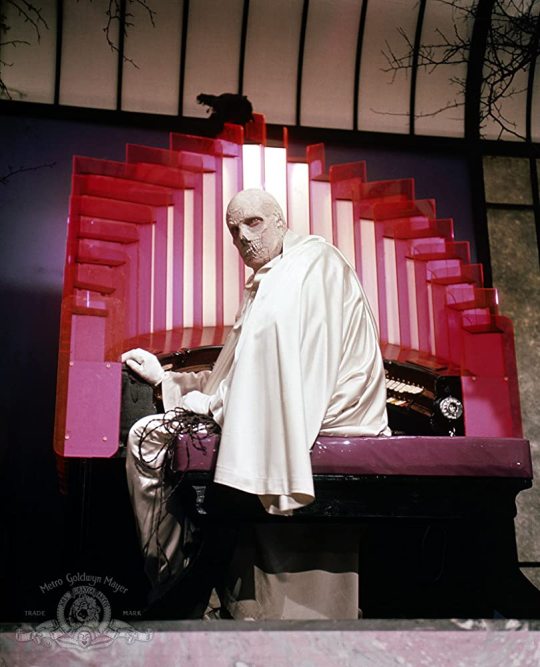
So, here’s a random fun fact for you Batman fans out there: apparently, this character was the inspiration for the version of Mr. Freeze that appeared in the seminal animated story, “Heart of Ice.” And, of course, that version of Mr. Freeze would become the inspiration for the character in nearly every other interpretation – both in and out of comics – to date. So, yeah, if you’re a Mr. Freeze fan, you can thank Egghead for it. :P
ANYWAY…while Vincent did many, MANY horror movies – both serious and comedic alike – the one thing he never got was the chance to play a horror icon, so to speak. Which is to say, when you look at other great classic horror actors over the years, whatever else they do there’s always one specific character for whom they’ll always be remembered. For Christopher Lee and Bela Lugosi, it was Count Dracula; for Boris Karloff, it was Frankenstein’s Monster; even with more modern actors, like Roger L. Jackson and Robert Englund, they have specific horror roles (The Voice of Ghostface and Freddy Krueger, respectively) for which they will always be most chiefly recognized. Vincent never had that; he never got that recognition of having a specific, classic monster he could be identified with. The closest we ever got was that he was so well-known for his work with the stories of Edgar Allan Poe, but that’s a bit of a different issue.
However, in the 1970s, Price DID get a chance to ATTEMPT such a feat, in two films that were part gruesome, gory nightmare fuel and part witty, satirical humor-fests: these were the Dr. Phibes films. The titular character was a deranged musical genius, who wore a mask to hide his hideous skull-like deformities – all elements taken from the timeless tale of “The Phantom of the Opera.” However, the story of the good doctor is rather different: Phibes’ descent into evil began when his beloved wife, Victoria, was stricken with some unholy medical condition. In order to save her life, a risky surgical operation was needed, which was so tricky it required the aid of no less than nine people to even hope for a success. Unfortunately, something went wrong with the operation; as soon as he got the news, Phibes hurried in the direction of the hospital…but was ironically caught in a terrible car crash, and apparently burned to death in the wreck. Husband and wife were then interred together.
The rumors of Dr. Phibes’ death, however, were greatly exaggerated. Phibes miraculously survived the crash, and later rose from the grave hideously disfigured by the accident. He brought his wife with him, and kept her body imprisoned in a sarcophagus filled with honey and special fluids, so that her beauty would forever remain intact. In the first film, “The Abominable Dr. Phibes,” the mad maestro goes on a killing spree, attempting to get revenge on the nine people he blames for the death of his wife and the ruination of his existence. In the second film, “Dr. Phibes Rises Again,” the musical maniac returns, now seeking to resurrect his beloved bride.
The Phibes films were a bizarre sort of pair. In a way, I sort of see these as the precursor to both the Scream films and the SAW movies. Like the former films, the movies combine elements of parodical dark comedy with real chills and gory, brutal death scenes. Phibes, himself, is treated as a serious and tragic character, and the fear factor is upped by his appearance. The mask he wears to hide his deformities is basically just Vincent’s face with some uncanny valley makeup added to enhance the effect, giving Price a particularly ghoulish appearance. This combined with the special voice box Phibes uses to speak after his accident – which causes Price to speak in a robotic, mechanical, droning sort of way that is both odd and genuinely unsettling – makes the character truly chilling. At the same time, however, he’s a sympathetic villain, as everything he does is in the name of his precious Victoria, and while one recognizes he is the bad guy of the story, it’s hard not to feel sorry for him and understand his motivations. The methods through which he offs his victims are pretty messed up even by today’s standards, too.
In all, I would say most of the scares from the film come from Phibes himself. The humor generally is the result of the other characters around him, as well as some the intentionally contrived elements of the plot that are meant to satirize various horror movie tropes. I’m a little surprised there weren’t more films in the Phibes franchise; if there had been, maybe Vincent could have had that one iconic horror character to be recognized by…but, on the other hand, one of the things that made Vincent so fascinating was that he wasn’t someone who could fit into a singular mold, so to speak, and instead had MANY roles for which any given person could recognize him for most keenly. Dr. Phibes was ultimately just one of those parts, but it’s a part well worth remembering.
Tomorrow, the countdown continues with Number 12!
#list#countdown#best#favorites#top 31 vincent price performances#the price may be right#vincent price#actors#acting#horror#comedy#dark comedy#dr. phibes#the abominable dr. phibes#dr. phibes rises again#number 13#movies#film
11 notes
·
View notes
Note
What do you think about the live disney princess movies? Like the beauty and the beast could’ve used separate actors for visual acting and the singing, Emma Watson was a bit dodgy idk. The music is toned down in the live action versions either by removing the songs or just being poorly done. Listening to some clips of the little mermaid 😘 hopefully I get around to seeing whole thing.
so when i was watching the live action beauty and the beast and lamenting the horrible music choices i had a mutual who actually linked me this video essay talking about live action disney's music choices in general and it was quite revealing, i highly recommend it. as for how i felt about the movie on a personal level.. i despised it lol. i think in my thread for rewatching all of these princess movies it took up the most space bc i had so many complaints 😭 here are a few summarized lol:
why i think the drop-off in disney live actions occurs after maleficent and cinderella is bc of the fact that these two were not originally musical movies. there were far less constraints present by which disney had to orient the original character arcs, and it gave the writers room to take the stories where they wanted to. the disney live actions after don't have this luxury bc almost all of them are based on films that were movie musicals in the first place. so you're essentially recreating a film almost letter for letter, while nonetheless trying to push it beyond those constraints, and it overall makes for a product that feels very.. awkward. not to mention the live action's music simply does not compare to the original's in any way, like adapting one of disney's best soundtracks ever was already going to be a hassle but they somehow managed to plummet even further below expectations with the end product
in that vein, i think what the live action beauty and the beast really suffers from is being both underwritten and overwritten. it's not willing to expand on the movie's original canon and instead creates new canon where it's not even necessary. for example: the live action cinderella expands on lady tremaine's cruelty and gives it a basis rather than making her into a randomly evil figure. comparatively, the live action beauty and the beast introduces lore as to how belle and the beast's mothers died and it's just.. not needed at all? they don't bond with each other over tragedy. they bond with each other over being outcasts who are misunderstood.
the live action also strips the original movie of all of its fun. there's no scene with belle's father chancing upon a moment of explosive genius, no maneuvering gaston out of the house into a pig puddle while the wedding band unceremoniously breaks into song. it's so lifeless as a movie bc there's only so much it can translate to a live action medium. this also applies to so much of the line delivery, which hardly feels theatrical anymore
the beast.. i'm so upset over how they revamped his character. there's so much deliberation and built up suspense in his original introduction to both maurice and belle that is simply lost in the adaptation. the beast's not an aggressor from the start, he prowls, he approaches slowly, bc he recognizes that he is viewed by others as a monster, bc he anticipates the rejection and fear. he's not actually an animal at heart in the original. he's the one who offers her a room, he's skeptical but quietly hopeful she might join him for dinner. the frustration only comes after bc it's paired with the despair and desperation of knowing that he may live like this forever. the live action carries none of that nuance. it paints him as an aggressor, as someone who doesn't even Want to treat her as anything more than a prisoner, and is forced into placating her by his servants. it completely fails to understand the beast wanted to break the spell, but he felt hopeless as to how
i respect that emma watson is a feminist but that really did not call for altering the entire script of a movie that was already fine and feminist in its own right lol.. like if i wanted to watch a movie about a man learning that it's not girly and cringe to read romeo and juliet i would peruse romance book twt like it was an entertainment channel. the beast's problem originally was that he had spent so long living as a beast he forgot how to live as a human. he forgot how to read bc in his mind no beast needs to learn how to read. to turn that portrayal of insecurity and shame into something about him not respecting shakespeare was just.. utterly stupid? and condescending?
all of this to say i wasn't really a fan of any of the live actions after maleficent and cinderella lol like obv each movie has its unique issues but they are in the same vein as this one's. except, lo and behold, the hype for the little mermaid was so highly anticipated ig that they decided to learn sense and actually put substantial effort into it. i really think it's the best live action disney adaptation thus far, there are so many things about it i love, not least of all the actually sensible feminist changes to the original script as compared to how beauty and the beast tried to recreate something as "feminist" that was already feminist in the first place. like there's no doubt about it, the original the little mermaid is very largely framed around ariel's desire to be with eric. but without giving away too many spoilers, the live action does such a marvelous job at reframing ariel's desire as one for the world, and in a way that really emphasizes on her conflict with triton. i do have a few minor complaints of the film but as a whole it's a really well done revamp that takes an originally very daring female protagonist and fleshes her out even more in the best way possible. eric is also given way more agency and personality so it really feels like you're watching the development of a romance between equals. i am absolutely sure you'll enjoy it when you watch it!
#outbox#this is so long.. the live action batb really instilled such hatred in my heart like omg what an atrocity
7 notes
·
View notes
Text
My nickname in the UC discord was ‘aster but diagnosed’ and now that Amelia has acknowledged it I want to talk about why.
Minor spoilers for Unprepared Casters Arc 4.
Aster (no last name) has ADHD, and it is a major part of why he ended up leaving home.
Adhd is often seen as “haha this person talks too much and can’t sit still in class”, both in society in general and fandom spaces. People don’t talk about executive dysfunction- being unable to start or complete a task, even if it’s not a difficult one- or emotional dysregulation (compounded by frequent negative feedback from adults and peers) or pretty much anything other than impulse control issues.
Aster does lack impulse control, but he also has other signs and symptoms of ADHD that I won’t get into because I haven’t relistened to the arc yet.
These struggles are a prime excuse for the way Aster and Quinn’s parents treat them. I believe it’s called the golden child / scapegoat dynamic. Aster’s mistakes, mess-ups, and symptoms are treated as irredeemable character flaws. He is constantly unfavorably compared to his twin sister Quinn, who herself is harmed by 1) witnessing her brother, who she loves, being mistreated and 2) knowing (consciously or subconsciously) that her parents’ love is conditional upon her being well-behaved and accomplished. In other circumstances, Quinn and Aster could have ended up resenting each other for the family dynamic. The fault lies with their parents, who have failed to recognize and support their children as individuals with unique needs.
Aster is traumatized from being emotionally neglected in this way, but he is also traumatized by the experience of having an unnamed, invisible disability. He, too, has internalized the idea that he is the problem, that he will always be judged as a failure and deserves said judgement for not functioning as well as people like Quinn. His anger issues are an obvious result of this. Aster has ‘leaned in’ to his reputation as a troublemaker as an attempt to take control of the narrative, an overcorrection for likely years of trying and failing to live up to his parents standards. Feeling hopeless to improve, he gives in to his impulsivity, feeling like he has little to lose now. Is this healthy or productive? No. But he lacks literally any support system other than Quinn and some of their friends. They’re all just teens. No adults seem to care about Aster’s well-being, only about his rule breaking.
Even in a world where ADHD was a known thing and Aster had been diagnosed, it’s a lifelong disability. You don’t grow out of it and there is no cure. Aster’s parents would likely still treat him unsympathetically. “We pay for your medication, we got you a special education plan, we’re doing everything we can to help you.” “We just need you to put in the effort that everyone else is putting in.” It’s pretty much impossible to get non-disabled people to understand what it’s like having a disability. Shitty parents are going to be shitty parents, no matter the reason or pattern.
I don’t really have a conclusion to this, other than Haley did a fantastic job with this character and I wish I was a blue tiefling who could throw knives.
#aster unprepared casters#unprepared casters arc 4#arc 4 spoilers#adhd#actually adhd#emotional abuse#unprepared casters
38 notes
·
View notes
Text
My DC Cinematic Universe: Superman (Part II)
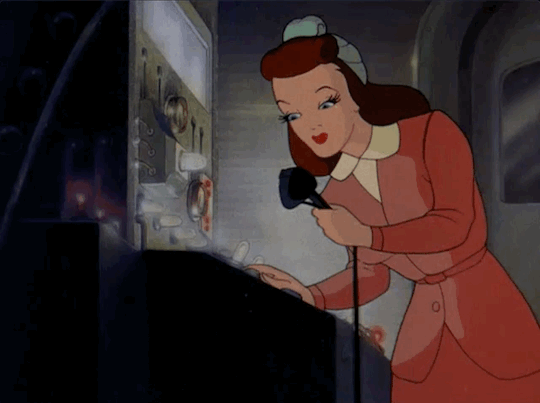
Chapter Two: Behind Every Superman
There's nobody quite as ubiquitous in the world of Superman as Lois Lane. Even in the 1930s, when women's rights were lefts, Lois made herself a powerful force and competitor for Clark Kent. Yes, she's what I would call the Inevitable Love Interest by definition, since every Superman worth his salt has a Lois that he ends up with, but that doesn't lessen her as a character...when done correctly.
So, OK, who is Lois Lane, down to her essence? Well, origin-wise, she's an army brat raised by her mother Elenor/Elinore Lane and strict military father, Sam Lane, alongside sister Lucy Lane. She's a no-nonsense, award-winning writer and reporter for the Daily Planet, and she's all about that story. Lois is, essentially, the prototypical female reporter in the same vein as the real life Nellie Bly. And she's one of the most unchanging characters in comic books, throughout her 84-year history. That's right, she's as old as Superman, making her the longest-lasting love interest character in the history of comic books. She's also one of the few female comic book characters that's gotten...well, a modicum of respect, frankly.

As a character, she's essentially always been put on equal footing with men, and with Clark Kent. That's a bit of a blanket statement, but is still tonally correct. Obviously, she was still prone to the sexism of the time. Her first comic book series was more about her connection to Superman, and rivalry with love interest Lana Lang (more on her later), than it was about her career. Despite this, though, she never lost sight of that career, and she was always treated with some respect. I mean, in case you didn't see what I just wrote, she got her own comic book series! Sure, it was a product of the romance comic boom to a certain degree; and sure, maybe it did some things that aged...
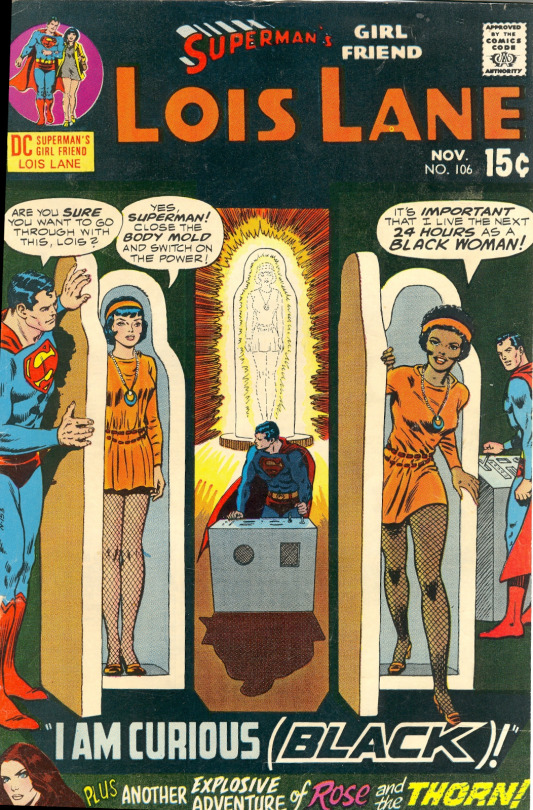
...EXTREMELY poorly, Jesus Christ; but she was still a pioneering comic book character in her own right. She's progressed quite a bit since that point, but she's always kept true to her roots. So, before I move on, let me establish the following about what I think makes a good Lois Lane. Your idea of the character may be different, but that's OK; this is just my version based on the books I've read that feature her.
Lois cares about the truth above all things.
She's a journalist because she believes that the truth is important, and she will do whatever she can to expose it and bring it to light. Even in the sexist sixties stories where Lois was pining over Superman, she still tried pretty often to figure out who he was in his everyday life. She doesn't like being lied to, but she's also willing to recognize when truth is not the best option. As a reporter, she's used to withholding certain facts in order to protect someone, but she's never willing to outright lie at the same time. Honestly, I think Lois' dedication to the truth is one of the things Clark likes most about her.
Lois is a realist, seeing the world in shades of gray.
I've talked a lot about character characters seeing in grayscale or black-and-white, and that's because it's an important metric for the world of Superman. Clark is aware of the greys, as I mentioned in the last post, but his optimism tends to make things just a touch more monochromatic. Lois, on the other hand, sees things a lot more realistically. This is in part because of her military upbringing, and in part because of her career in journalism. More importantly, she never labels anything as "good" or "bad" until she gets all the facts about the situation and context. Sometimes it does turn out to be that simple, and sometimes it doesn't. Either way, Lois will find out where in the gradient somebody tends to be, and will act accordingly as a result.

Lois is dedicated to a fault, and tends to get in over her head.
Lois, as a love interest comic book character, tends to get lumped into the category of damsel-in-distress...A LOT. And while that's a reductive and irritating stereotype for female characters...I think it actually makes sense for Lois. The problem with being Lois Lane is that you're extremely stubborn and dedicated to a story, and thus are unwilling to let go of something, even when it could prove dangerous for you. Now, Lois can read situations appropriately, but she's also not afraid to shy away from the more potentially harmful stuff. So, as a result, she tends to find herself in a bit more trouble than originally intended. I imagine that, before Superman comes along, Lois has been in a hostage situation or two, maybe stuck overseas in a warzone for a little bit, and is probably a well-known name to the local Metropolis PD (who I'll get to in another chapter).
Lois is a strong, independent woman...and she loves Clark.
Here's the main thing about Lois Lane. She's stubborn, independent, head-strong, dedicated, street-smart, persuasive, savvy, and powerful. All things that make a good reporter. However, in relationships, she's kind of a lot. Before meeting Clark, I imagine that Lois was happily and perennially single. I would also imagine that she didn't date a ton, and didn't need to date a ton. She's a career woman, and she's happy that way. However...Clark Kent is not only a colleague and a competitor who constantly beats her to the punch, he's also a bit of a mystery. And working together as often as they do, Lois understandably caught feelings for him, while also dealing with her feelings for Superman at the same time. But here's a point to be made: Lois was dating Clark, not Superman. After the '60s settled, and Lois was allowed to not be solely defined by Superman, she began to develop feelings for Clark Kent instead. And those feelings were and are extremely strong. Like I said, Lois is strong and independent, absolutely. But that doesn't mean she doesn't rely on Clark for his compassion, his challenging nature, his relative calmness, and his ability to ground her and fuel her at the same time. The Lois-Clark relationship is extremely important, and I will die on that hill. They are genuinely the best relationship in comics.
With all of that said and done, I wanna look at previous adaptations of the character, before I go into what I think a cinematic Lois Lane should be. Keep reading for more of my rabid rambling.

Lois Lane: Adapted
Because of her central role in the Superman mythos, she's been adapted into nearly every Superman-based production, dating back to the original 1940s film serials and radio productions, as well as the 1950s television series Adventures of Superman. But those were essentially what you'd expect of Lois, with two actresses (Phyllis Coates for season 1, and Noel Neill afterwards) playing the hard-nosed reporter and compassionate champion of the people, respectively. Haven't seen that series, so I can't really comment. However, I will comment on one of the best live-action versions of the character, played by Margot Kidder in the Reeves-led films.
Margot's Lois Lane is determined, lively, witty, and curious to a fault. I think I can say with little argument that she's the best Lois Lane in film. Maybe not in live action in general, but definitely in film. She's a little too damsel-in-distress-y, even for somebody who thinks that role is one that Lois fits, and maybe a little more reckless than is reasonable for a reporter, but I will stand-by this as the best cinematic version. I also quite like her relationship with Clark and Superman, especially as it evolves through the first two films. This version also established the fact that Lois, despite being a great writer, can't spell. She's a charming iteration of the character, even in a film that's already extremely charming. One of these days, I'll talk more about the wonderful Superman: The Movie, but not today. Back to Lois.
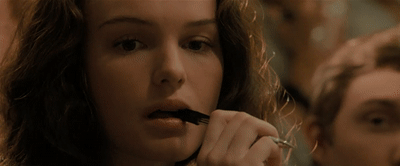
Kate Bosworth, who takes up the role in Singer's Superman Returns, is...there? That's almost the best thing I can say about her, because she's an extremely boring version of the character, despite literally being the same Lois Lane that Margot Kidder had played nearly 30 years prior. She's a hard-nosed reporter, I guess, and she gets into as much trouble as Kidder's lane does, but she's a VERY different version of the character. Bitter and acrid towards Superman (y'know, because she abandoned her while she was pregnant with his child, so...yeah, fair enough), Bosworth's iteration of the character made her so very unlikeable. Like, I get it, but that movie's story is so flawed that it actively ruins Lois and Superman individually and together. So many issues. In any case, this Lois is bitter and boring. The mother angle in interesting, admittedly, but doesn't save the character.

Amy Adams is not Lois Lane. Full fucking stop. In the entirety of the Snyderverse, she never once became Lois for me, despite being a hard-nosed reporter who tirelessly pursues an angle in Man of Steel and Batman v. Superman: Dawn of Justice. She has the external trappings of being Lois, but she's too...soft? Is that the right word here? She lacks the wit and spunk I think of with Lois and really isn't too much more than a love interest for Clark. Sure, I do love the fact that she figures out who he is basically immediately, because I think Lois actually is smart enough to discern Superman's identity on her own. But here's the thing...she's Amy Adams. It's nearly impossible for me to see her as anything else. Maybe it's the red hair? That's at least a part of it, because she definitely doesn't look or dress the part.
Another part of it is the fact that she doesn't talk back. Ever. She's taken captive or held hostage a bunch of times in those movies, but she always just rolls with it, with little fight or resistance. Lois would fight back, or at least talk back. Definitely wouldn't go down without a fight, and that's basically all this Lois does. She always feels helpless, and I shouldn't feel like Lois is ever helpless. She's an army brat! You really think Sam Lane wouldn't have taught her to kick people's asses in self-defense? She's just too passive, and being Amy Adams really doesn't help.
So, yeah, Margot's my favorite cinematic Lois...but not my favorite live-action Lois. That role absolutely goes to...

Here's the truth: I haven't seen too much of Elizabeth Tulloch as Lois, but what I have seen I very much like. She's definitely playing a more experienced and open version of the character, while also being the determined and passionate person I love to watch. I really should watch more of Superman and Lois (I've kind of soured on the CW shows, for various reasons), but I do love what I've seen of this Lois. Plus, she's a better version of mom Lois than Bosworth's version, looks more like a comic book version than almost any other version (especially Amy Adams' version), and still maintains the toughness I expect of a Lois Lane. A+.
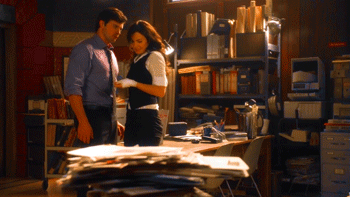
And for the record, I like Erica Durance's version a lot as well! We got to know her over the course of 7 years on Smallville, and I liked her more and more as time went on. As a fully fleshed out and interesting version of the character, I think she fits that Clark very well, and is faithful to the character as a whole. A- for Erica Durance!
But even then, none of these are my favorite adaptation of Lois. Unsurprisingly...
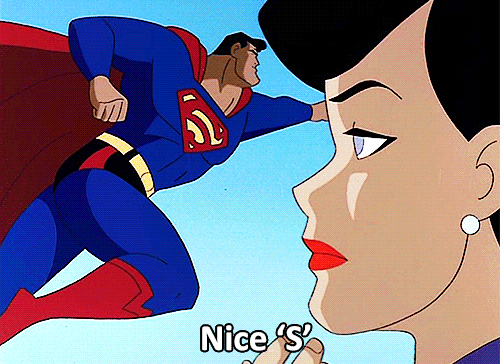
It's Dana Delany that wins the prize for me. This is my prototypical Lois Lane, taking the best iterations of the character from film and page. Danger-prone but unafraid of danger, hardnosed and always looking for a story, antagonistic to Clark until getting to know and care for him...this is essentially my Lois. If you haven't seen Superman: The Animated Series, I highly recommend it for its adaptations of various characters. Won't be the last time it appears on this list, that's for sure.
In truth, most animated versions of Lois Lane are pretty good, not gonna lie. Basically every one of them has something of merit, but Delany's is still my favorite. Runner-up is probably Rebecca Romjin's version in The Death of Superman and Reign of the Supermen, which is an underrated pair of films, in my opinion.
But with all of that said...

My Lois Lane
In my theoretical Superman film, Lois Lane will be introduced on the job, which is pretty standard in films. As I've said before, she's a witty, strong, passionate, stubborn truth-seeker, and that'll be apparent throughout this film. Her attraction towards Superman is essentially her attraction to a story or a mystery. She'll get closer to him throughout...but they actually won't interact all that much. Instead, the two will occasionally cross paths while Lois is investigating the villains of the film. But in reality, she won't spend nearly as much time with Superman. However, she will be spending quite a lot of time with Clark Kent. And while Lois and Superman will have some conversations, it's the relationship between Lois and Clark that I'm more interested in exploring. We all know that Lois and Clark get together, but we should be invested in their relationship beyond simple expectation. We should actually WANT them to get together.
In truth, my idea of Lois Lane is pretty simple. It should be somebody who's able to pull of determination and hard-headedness, while also being witty and enjoyable to watch and listen to. Lois should be a fast-talker, able to get somebody to admit to something without even realizing they've done it. Persuasive and perceptive, quick on her feet and quick-witted, street-smart and savvy, etc. We should enjoy watching Lois on screen, and she should command a presence. When Lois is on screen, she should share focus with Clark, not be perceived as the second-string. You pay attention when Lois enters a room, because she keeps you on your toes. When she enters a LexCorp press event, Luthor makes sure that ONLY HE talks to her, because anybody else is at risk of revealing company secrets to her accidentally. THAT is my Lois Lane.
Oh, and one more thing. I don't go into fancasting, because I don't know enough people off the top of my head, but I do want to mention something in these posts: Lois...might be Latina?

I say maybe for a few reasons. One, in recent comics (the New 52, yes, but still), it's revealed that Lois' mother is at least partially Latina, but that's never been fully confirmed. Two, the DC Bombshells version of the character is pointedly Cuban-American. And for the record, if you haven't read Bombshells, it's a HELL of a lot of fun , and well-worth your time in reading. Lois (AKA Eloisa in this universe) takes the role of a teenaged newsie and budding journalist helping the titular Bombshells in their various efforts throughout World War II. And in case you were wondering, yes, she ends up in a relationship with Supergirl. But yeah, she's specifically Cuban-American.
The other reason I say maybe is because, to be honest, there is no evidence for any of this outside of alternate universes or the New 52. So, is Lois necessarily Latina? No. But, uh...why the fuck not? I'm not gonna stand here and say that Lois has to be white, because there's accidentally nothing in the comics that limits her racial background other than tradition. Point being, whoever is the best should get the job. No matter the race, if they can fit those character traits I've put down, they should get the job. Duh. If anybody has any suggestions, I'd love to hear them!
Well...Jesus. Now that that's over, it's time to move on to the parental figures in Superman's life, both living...and dead.

Index: Superman
Part I: Why I Love Superman
Part II: On Lois Lane
Part III: The Kents
Part IV: The 'Rents
Part V: The...Frendts?
Part VI: Lex Luthor
Part VII: The Real Villains
Part VIII: Superman's Rogues Gallery
Part IX: The Story - Act One
Part X: The Story (Acts Two and Three)
Part XI: The Story - Climax
Part XII: Epilogue (Part One)
Part XIII: Epilogue (Part Two)
#dc comics#dc headcanon#dc universe#dc movies#james gunn#superman#lois lane#margot kidder#kate bosworth#amy adams#dana delany#erica durance#elizabeth tulloch#superman and lois#lois and clark#clark and lois#character essay#headcanon#headcanon post#dc cinematic universe#dc bombshells
28 notes
·
View notes
Note
I find your posts on opera really interesting...even though I've never seen an opera! Do you have any recommendations for getting into opera (e.g. which are the easier ones to listen to, best shows to see for a first opera, etc)?
Thanks for turning to me for this question. I'm honored.
One opera I often recommend to newcomers is Hansel & Gretel by Engelbert Humperdinck (a 19th century German composer, not the British pop singer who took said composer's name as his stage name). The story is a familiar fairy tale, it isn't too long or complicated, the tone is a nice balance between dark and light, and the music is both easy to listen to and gorgeous. As your first filmed production, I'd recommend the Metropolitan Opera's 1982 Christmas Day broadcast, which stars Frederica von Stade and Judith Blegen in the title roles, and which is sung in English.
Although if you don't want to start with a children's opera, but would prefer a more "adult" choice, there are plenty of other other options:
La Bohéme by Giacomo Puccini is often considered the ideal "first opera." The plot is a simple slice of life, the music is sumptuous, the tone effectively balances comedy and drama (although the ending is tragic), and since it's about the lives of ordinary young people and their romances and breakups, everyone can identify with at least one of the characters. If you're not a fan of sentimental tragic love stories, though, I wouldn't recommend it. But if you're open to it, than I'd recommend either of the two filmed broadcasts of Franco Zeffirelli's Metropolitan Opera production (either from 1982 with Teresa Stratas and José Carreras or from 2008 with Angela Gheorghiu and Ramón Vargas), or else Baz Luhrmann's 1993 Opera Australia production with Cheryl Barker and David Hobson, which resets the action in the 1950s (and was an obvious forerunner to Moulin Rouge!).
La Traviata by Giuseppe Verdi is another good choice. It's also a tragic love story (based on the same novel as the classic Greta Garbo movie Camille, in fact, and even more of an obvious influence on Moulin Rouge! than La Bohéme is), but it's slightly less sentimental than Bohéme and more substantial in plot, with social commentary about "fallen women" and how they're treated. Until recently, I would have recommended Franco Zeffirelli's 1982 film version starring Teresa Stratas and Plácido Domingo – it is a beautiful, compelling movie. But given the recent #MeToo allegations against Domingo and his possible links to a sex trafficking ring, it's probably not the most comfortable choice to watch anymore. So I'll recommend the 2006 LA Opera production starring Renée Fleming and Rolando Villazón – especially because I attended it in person as a teenager and saw the cameras filming!
Then there's Georges Bizet's Carmen, probably the world's most popular opera, with absolutely iconic music (you're bound to recognize at least some of it from pop culture!), a tone that strikes an excellent balance between comedy and tragedy, and a simple yet compelling story. Some are turned off by what they see as the sexism and racism of the plot (it revolves around a sexually liberated Spanish Romani woman who seduces a young soldier, driving him to a life of crime, and then leaves him when she can't bear his jealousy, which drives him to murder her), but you don't have to view it that way. It can also be seen as making thought-provoking, valuable commentary about issues of gender, race, and social class, without portraying either Carmen or Don José as clearly "good" or "bad." Of all the filmed performances, I'd recommend the 2006 Covent Garden production with Anna Caterina Antonacci and Jonas Kaufmann.
If you'd rather start with a comedy, though, Gioacchino Rossini's The Barber of Seville (Il Barbiere di Siviglia) is the classic comic opera. It's hilarious, the plot is reasonably simple and easy to follow, the characters are likable, and the virtuosic music is truly sparkling, for want of a less clichéd adjective. Jean Pierre Ponnelle's 1974 studio film version with Hermann Prey, Luigi Alva, and Teresa Berganza is probably the best widely available version to start with, though if you can get a hold of the 2007 Met production with Peter Mattei, Juan Diego Flórez, and Joyce DiDonato (it's available from Met Opera On Demand for a $4.99 rental), that's also an outstanding version.
Of course my own first opera was The Magic Flute (Die Zauberflöte) by none other than Wolfgang Amadeus Mozart. The plot is slightly complicated, and the libretto features all too much 18th century racism and sexism (which modern productions and adaptations usually downplay), but it's still a very enjoyable fairy tale, magical and funny yet heartfelt and thought-provoking too, and with magnificent music. To this day I'm slightly obsessed with this opera, with a Blogspot blog devoted to my musings on it, and as you probably know from my posts, I've written a gender-bent retelling of the story, An Eternal Crown, which I'm trying to get published as a novel. I'd recommend either the 1991 Met production with Francisco Araiza and Kathleen Battle (a gorgeous traditional-yet-modernist production with sets and costumes by the famous artist David Hockney, although unfortunately, it does have the slave characters in blackface), or the 2003 Covent Garden production (a slightly darker and less traditional production, but excellently performed, and blackface-free).
I'm sorry if I've gone on too long, but this is obviously a subject I care a lot about. I hope whichever opera you choose to start with is just right for you!
#opera#recommendations#hansel and gretel#la boheme#la traviata#carmen#the barber of seville#il barbiere di siviglia#the magic flute#die zauberflöte
39 notes
·
View notes